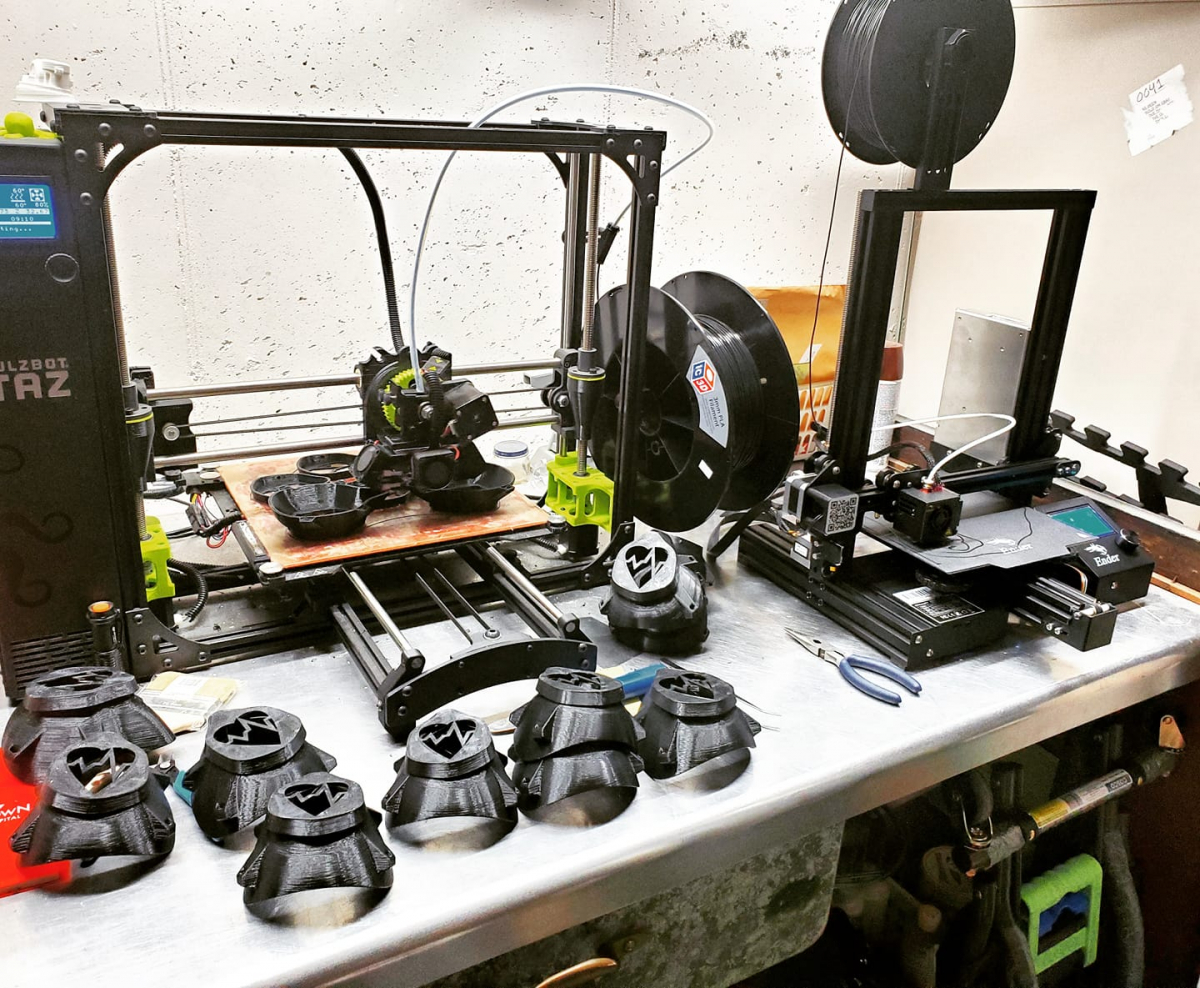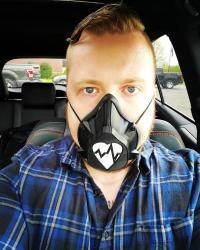First-year physician assistant studies student uses skills to create PPE for health care workers
First-year physician assistant studies student Zack Gregory knew he was called to aid health care workers who are grappling with personal protective equipment (PPE) shortages due to the COVID-19 crisis. Now, he’s using his artistic skills and 3D printing technology to create and ship masks for free nationwide.
Gregory first started a YouTube channel to post different art and 3D printing tutorials so people could learn new concepts while quarantined. What began as a creative outlet soon turned his home into a mini PPE factory once he received files from a friend to print protective masks.
“Once I received files to print the masks, I put out a call to action on social media,” Gregory said. “Requests started flooding in almost immediately from across the nation. It spread like wildfire. Making these masks has now become my full-time job.”
Gregory received the mask files from a 3D printing program where users can upload different plans. Once the file is sent to the printer, the device begins to map out every detailed movement to create the finished product.
“A 3D printer works like a supersized hot glue gun,” Gregory said. “It prints fine lines over and over. My masks are printed in two parts: the face covering and the filtration cap.”
Before getting into PA school, Gregory worked as a paramedic with UK HealthCare. He’s currently on part-time PRN status now and looked to his connections in the field to conceptualize the filter for his masks.
“One of my paramedic friends pitched the idea of using a HEPA vacuum bag for the filter,” he said. “This particular bag has a 99.9 percent filtration rate for 0.3 microns. To contrast, the N95 mask is rated at 95 percent. So, in theory, this mask should be filtering out even more than the N95. Research and studies show this design is as close the N95 as you can get.”

To seal the masks, Gregory is using weather stripping around the edges and suede cord for straps since elastic is almost impossible to find.
“It’s a heavy duty design,” Gregory said. “The mask really muffles your voice but at least you know if sound has trouble getting out than it’s doing the job it needs to do.”
So far, Gregory has coordinated front-porch pickup (with proper social distancing) at his home for local workers in need and shipped masks across the United States from California to New Jersey.
He’s using Patreon to collect donations from supporters who wish to help him purchase supplies to keep creating the masks, cover shipping costs, and ensure they remain free to give to any health care worker who needs one.
Today, Gregory plans to use his time to make 150 masks and keep completing orders as they come in. “It’s amazing to see people stepping up during this crisis,” he said. “The artists, the crafters, we’re all banding together to make sure those in health care don’t go without the protection they deserve.”
